National Close the Gap Day: Conversations with Tino, Jemicca, Chris, Jamie & Erin
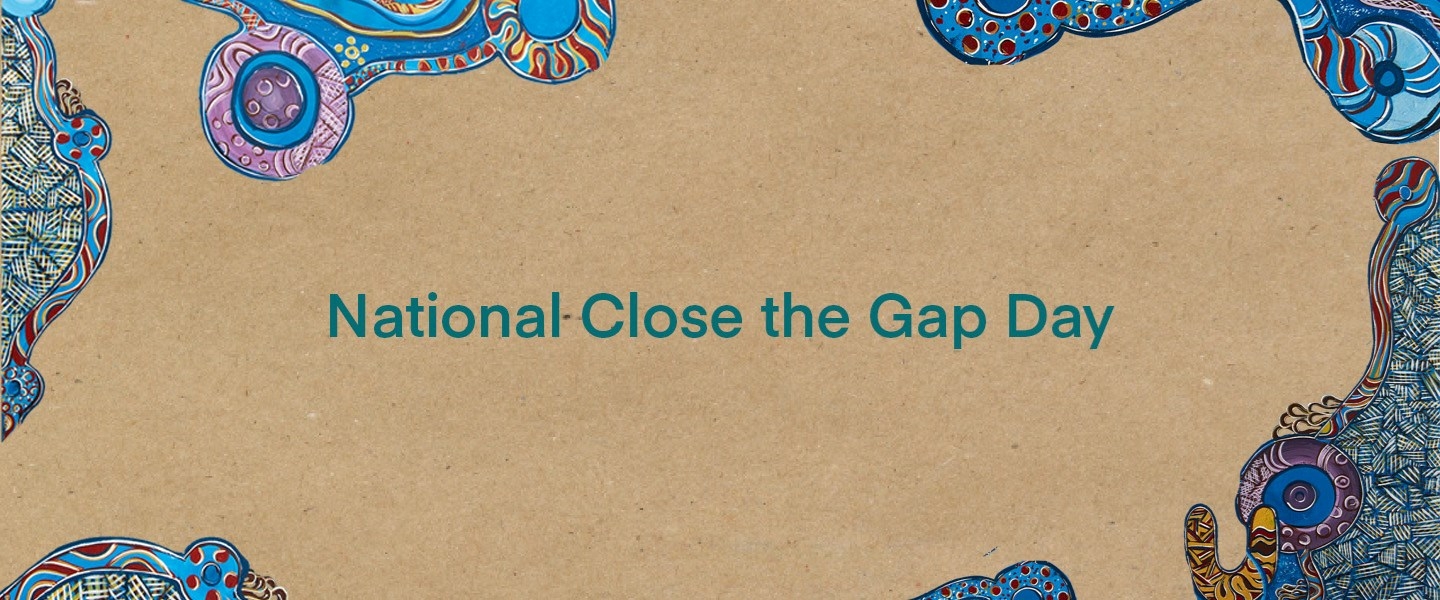
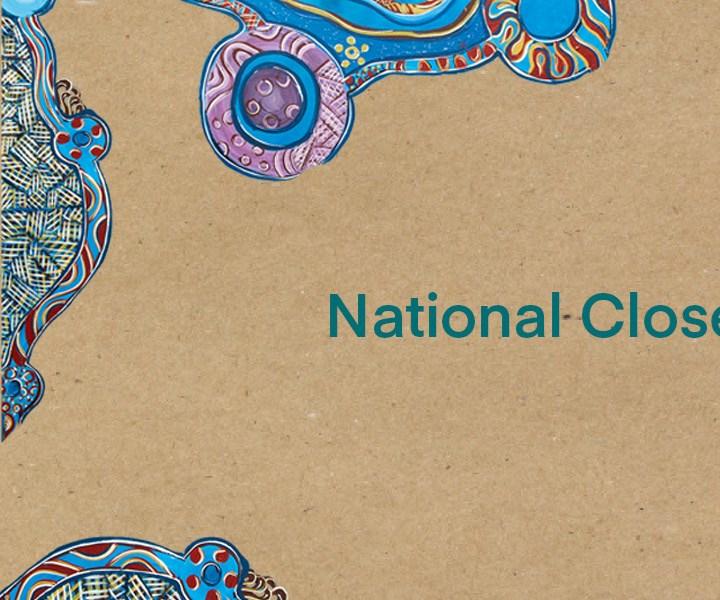
17 March 2022
Today is Close the Gap Day, an annual national day of action, pledging support to achieving Indigenous health equality by 2030 for Australia’s Indigenous peoples.
Launched in 2007, the Close the Gap campaign aimed at improving the health outcomes of Aboriginal and Torres Strait Islander people, advocating for health care choice and access, a responsive healthcare system that is sensitive to cultural and linguistic differences, and safe housing that promotes good health.
Progress against the Closing the Gap targets has been mixed over the past decade. As four targets expire, there have improvements but key areas of concern that require more progress.
- The target to halve the gap in child mortality rates (by 2018) has seen progress in maternal and child health, although improvements in mortality rates have not been strong enough to meet the target.
- The target to halve the gap for Indigenous children in reading, writing and numeracy within a decade (by 2018) has driven improvements in these foundational skills, but more progress is required.
- There has not been improvement in school attendance rates to close the gap between Indigenous and non-Indigenous school attendance within five years (by 2018).
- The national Indigenous employment rate has remained stable against the target to halve the gap in employment outcomes between Indigenous and non-Indigenous Australians within a decade (by 2018).
Two of the continuing targets are on track:
- The target to have 95 per cent of Indigenous four year‑olds enrolled in early childhood education (by 2025).
- The target to halve the gap for Indigenous Australians aged 20–24 in Year 12 attainment or equivalent (by 2020).
While on almost every measure, there has been progress, achieving equality in life expectancy and closing the gap in life expectancy within a generation is not on track to be met by 2031. Aboriginal and Torres Strait Islander people still have a lower life expectancy than non-Indigenous people (Australian Government, 2020).
As a part of Wilson Group’s commitment to Reconciliation, we are committed to increasing the understanding, value and recognition of Aboriginal and Torres Strait Islander cultures, histories, knowledge and rights. On this national day of action we spoke to five Indigenous team members from Wilson Security about closing the gap and what it means to them and their mob.
Meet Tino Ross
Northern Territory
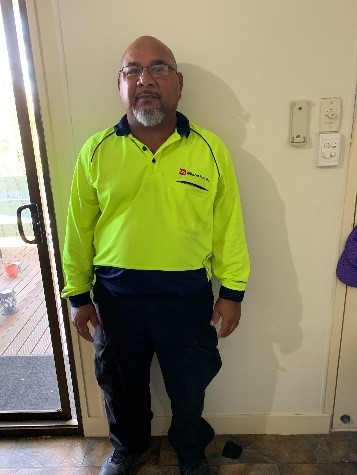
“Please work to educate our mob and give them better options.”
Why is Closing the Gap important to you? From where I come from, non-Indigenous people have facilities and education to live a healthy life. In remote locations, us Indigenous people lack this knowledge as we have lived off the traditional diet of our ancestors not knowing if this is a factor to a reduced life expectancy.
Does the inequality in health between Indigenous and non-Indigenous people affect your family? I have seen the communities and what our mob live through. Without education regarding healthy living and access to advanced medical treatments and resources we as a mob will never be able to move forward. It is also cultural to not ask for help, we need to make it easier to obtain the help to reduce this stigma.
Do you think the mainstream health system is equipped to assist Indigenous people? Yes, the main system is equipped but without education we don’t know what is available and what is better for us.
Do you think Australia will close the gap by 2030? No, as a mob we don’t know what is right and wrong. An advert on the TV is not reaching the areas that we need. We need to have people on the ground working with us to give us better options.
Meet Jemicca Smith
Queensland
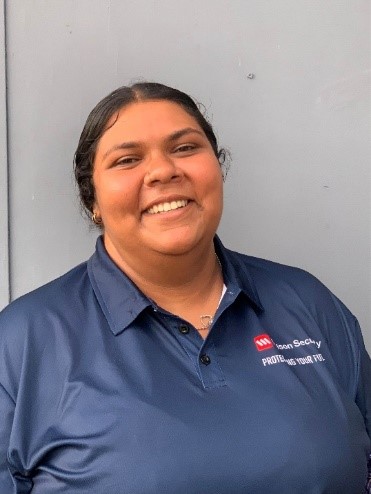
“I believe that we are moving in the right direction to close the gap however, we need to move faster if we are to achieve this by 2030.”
Why is Closing the Gap important to you? For our mob to move forward, we must focus on the health and wellbeing of all our people. Currently medication can be hard to obtain due to financial difficulties and education is lacking with our youth regarding healthy choices and lifestyles.
Does the inequality in health between Indigenous and non-Indigenous people affect your family at all? I have family that suffer from illnesses but are generally looked after by the government health system. Obtaining private health insurance, is almost impossible for my family, therefore wait times can cause these illnesses and injuries to worsen before they are seen to. I am aware that remote locations lack the resources to be able to attend facilities and get proper medical support.
Do you think the mainstream health system is equipped to assist Indigenous people? Yes, but only in built up areas. Remote locations are still without.
Do you think Australia will close the gap by 2030? I hope so but, until we know how to reach all remote locations and can reach out to less populated areas, the gap may never close.
Meet Chris Gallagher
New South Wales
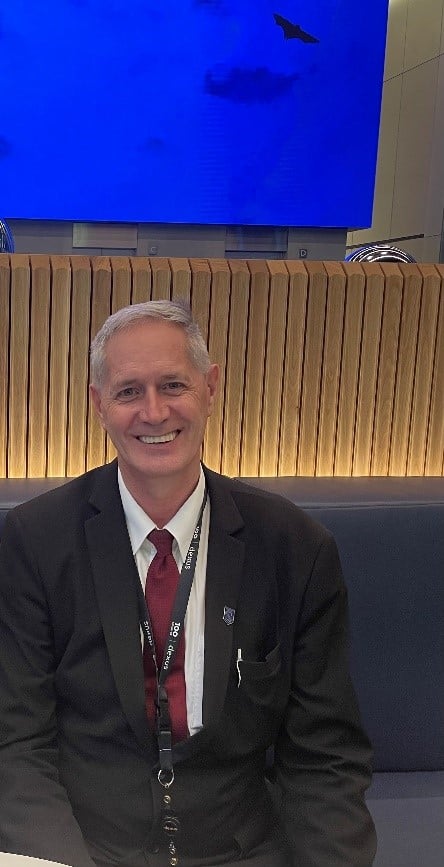
“When we are able to get to affordability in Employment and Education this will contribute to closing the Gap between the Indigenous and non-Indigenous community.”
Why is Closing the Gap important to you? Closing the Gap is important to me as I would like to see equality in Health Care for the Indigenous Community.
Does the inequality in health between Indigenous and non-Indigenous people affect your family at all? Yes, I see that there is a huge gap of availably of basic Health Care options with the Indigenous and non-Indigenous community. I believe this is due to affordability.
Do you think the mainstream health system is equipped to assist Indigenous people? No.
Do you think Australia will close the gap by 2030? No, there are more underlying issues that the Government does not take seriously.
Meet Jamie Shrive
South Australia
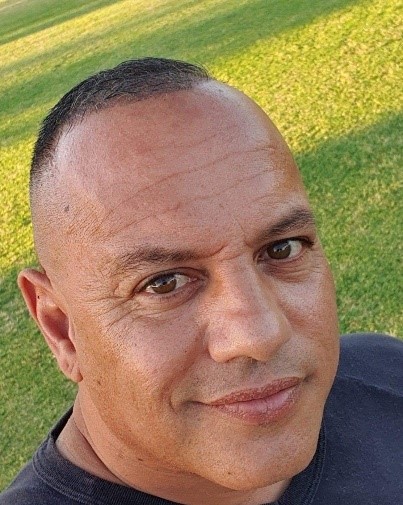
“Education is key to assist closing the gap. People don’t know what they don’t know and lack of knowledge of available resources and who can help will always hinder the progression.”
Why is Closing the Gap important to you? I believe that currently the government overlook our minority group and key health concerns that are major in our mobs like diabetes. I don’t believe that it is a malicious intent by the government, but we must do more research to advocate for our mob, especially in remote locations.
Does the inequality in health between Indigenous and non-Indigenous people affect your family? Not directly however, this is because I have learnt to advocate and fight for my family.
Do you think the mainstream health system is equipped to assist Indigenous people? They have the facilities, resources, and equipment to assist Indigenous people but lack of advocates and cultural awareness to truly assist and close the gap.
Do you think Australia will close the gap by 2030? It is achievable with the right information and advocacy in built up areas and a detailed action plan. I feel remote areas will always suffer.
Meet Erin Penney
Victoria
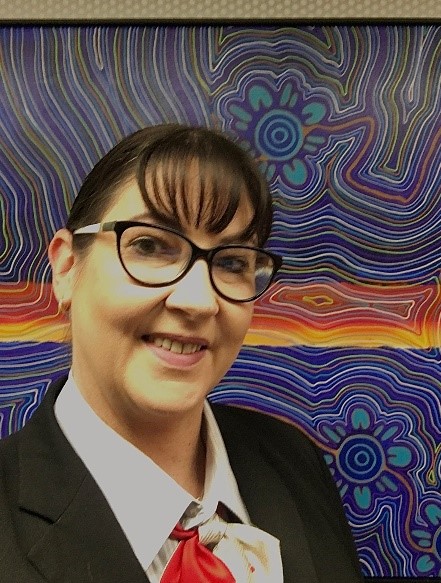
“Further understanding of Indigenous connection to country and culture is required to fully develop any program to close the gap. We as a country who all want the same strong, healthy, bright future to look forward to, without supressing where we have come from”
Why is Closing the Gap important to you? I would like to see my friends and family have strong and healthy futures. Not only for themselves but for our children and grandchildren to carry our country and our culture into the future.
Does the inequality in health between Indigenous and non-Indigenous people affect your family? The inequality in health affects the first Australian population Australia wide. We have a shorter life expectancy and different health concerns from a lot of our non-Indigenous friends to say I am not affected would be to deny my background.
Do you think the mainstream health system is equipped to assist Indigenous people? Not currently.
Do you think Australia will close the gap by 2030? I am hopeful but believe that “the gap” may be a lot larger than first thought.
For more information about the Close the Gap campaign and to pledge your support visit antar.org.au/close-gap.


